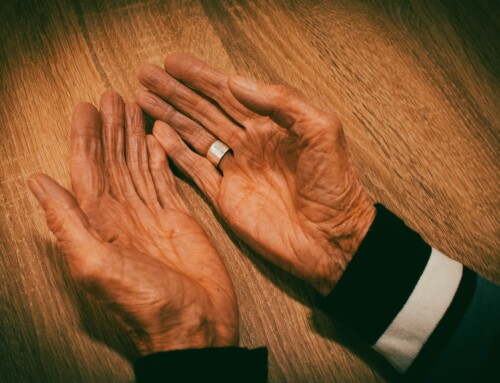After the diagnosis of a terminal illness, patients are at an elevated risk for mental health issues. This can be especially true of seniors who are already coping with a lot of emotional and physical changes. Mental health counseling is often beneficial during this time. At the end of the journey, hospice care may become necessary, and counseling both for the patient and their family can prove to be significantly beneficial.
Hospice care counseling provides support to address patients’ physical, emotional, and spiritual needs, while also recognizing that this time is dificult for families as well.
Here are five reasons why seeking counseling during hospice care can ease anxiety and bring peace.
- Enhanced quality of life: Hospice care is meant to help patients with symptom and pain management, improving their quality of life. Hospice care professionals can offer support and counseling to help patients come to terms with the emotional challenges of their condition. Quite understandably, the thought of approaching death isupsetting to most people. But with someassistance, patients can find real solace, contentment and happiness during their final days. Compassionate mental health care professionals can also help individuals to make their end-of-life decisions, alleviating some of the stress and anxiety inherent in those decisions.
- More meaningful time spent with loved ones: When terminally ill patients are also struggling with their mental health, their closest relationships can become strained. Hospice provides a time and place for families to enjoy their opportunity to be together, without worrying about catering to the emotional instability that may accompany a severe illness.
Hospice care professionals can offerr the emotional support needed to facilitate conversations and heal relationships. A hospice care counselor can also help to prepare families and friends for their loved one’s death. Giving people an opportunity to express their emotions during this time can help to more easily process their grief. - Reduced health complications: Hospice offers unique and personalized support for terminally ill patients. This care plan includes helping them to navigate their day to day lives more safely, deferring the possibility of additional physical health complications. When hospice patients feel emotionally balanced, they are more likely to peacefully accept any required care and not engage in any harmful behaviors. By keeping physical issues to a minimum, hospice workers can help patients to enjoy their remaining time without worry.
- Manage mental health symptoms: Some individuals have mental health problems before their diagnosis, and others experience the onset of depression or anxiety once they hear the news. Hospice offers mental health support to help patients come to terms with all of the realties of their situation, from cognitive issues to depression or stress. Sometimes medication is recommended for treating the unique mental health symptoms associated with these disorders.
- Elevated commitment to care goals: When patients have trouble dealing with their mental health concerns – especially if they are still undiagnosed – they are more likely to fight back against any recommended care goals their care team puts forth. However, when a mental health professional identifies any mental health concerns, they can tailor the care and inspire commitment to any plan. Hospice professionals can also work with families to honor their loved ones’ end-of-life decisions and wishes – as sometimes families have different ideas about how to handle the situation. In this way, the patient can feel more control and peace regarding their own situation.
Determining the right time and circumstance to invoke hospice care can be challenging, but it typically represents the best decision for patients who are not expected to live beyond the next six months. Mental health and palliative care can work in tandem to provide comfort and offer coping skills to patients and their families during the complex grieving process.
A Banyan Residence is an assisted living and memory care center located in The Villages.








